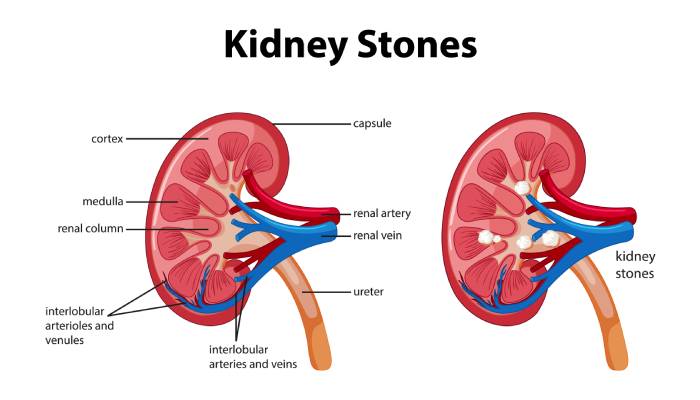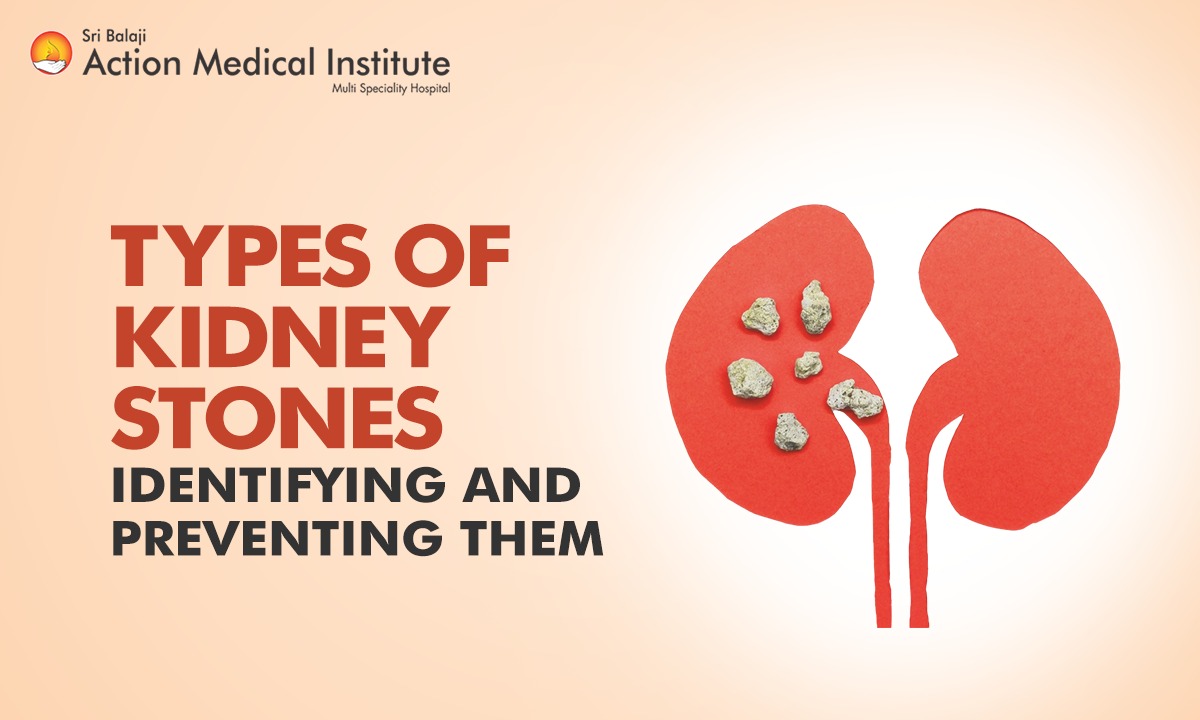Types of Kidney Stones: Identifying and Preventing Them
Medically speaking, nephrolithiasis, or stones in the kidneys, is the formation of solid structures in the kidney when some urinary substances are highly concentrated. These stones may differ in size and composition, producing severe pain and discomfort in the urinary tract when they pass through. Knowing the different types of kidney stones comes in handy because this is the key to successful treatment and prevention.
Types of Kidney Stones
1. Calcium Stones
a) Calcium oxalate stones: This type is the most common and it develops when oxalate, a substance that is present in certain foods such as spinach, nuts and chocolate, is connected with calcium in the urine.
b) Calcium phosphate stones: Normally less prevalent, these stones result from conditions that increase the alkalinity of the urine, which may arise from UTIs or metabolic disorders.
2. Uric Acid Stones
Acidic urine promotes the formation of oxalate stones, which are crystals of uric acid deposited in the kidneys. Conditions like a high-protein diet, gout, or certain medications can boost uric acid levels in the urine.
3. Struvite Stones
Struvite stones, which are commonly called infection stones, tend to appear as consequences of urinary tract infections that are caused by certain types of bacteria. Such stones may develop and become extensive, which presents a high opportunity for serious complications.
4. Cystine Stones
Cystine stones form mainly in people who have a history of such an inherited disease as cystinuria. This condition develops when the kidneys become too stressed, leading to the excretion of excess cystine, an amino acid that is the major cause of cystine stones.

Identifying Kidney Stones
The identification of kidney stones requires a symptom assessment as well as procedures such as laboratory tests and investigative studies involving radiological imaging.
1. Symptoms Evaluation:
The presence of kidney stones may be signalled by a range of symptoms, such as pain in the back side, abdomen, and groin area, often called renal colic, which may radiate to the genital area. The most commonly known include nausea, hematuria, night urination (nocturia), and intense pain during urinating (dysuria). However, in addition to the initial assessment, more in-depth tests, including imaging and examination of your urine sample, are necessary to make a definite diagnosis and determine the composition of the stone.
2. Medical History and Physical Examination:
A detailed medical history is made to reveal whether the patient is at a higher risk of developing a kidney stone, i.e., family history, dietary habits, current medical conditions, medication use, etc., or if they have already developed a kidney stone in the past.
3. Kidney Stone Treatment in Delhi with Diagnostic Tests:
a) Urine Analysis: One of the routine tests that is very helpful in kidney stone diagnosis is checking the presence of blood, crystals or impurities in urine to identify the presence of kidney stones. The acidic calcium oxalate, alkaline struvite and acidic uric acid crystals can be ideally identified under the microscope with careful analysis of the urine sediments.
b) Blood Tests: Blood tests can be taken to estimate kidney function and analyse the levels of substances like calcium, uric acid and electrolytes that may catalyse stone formation.
c) Imaging Studies:
- Computed Tomography (CT) Scan: With this imaging, it is widely accepted that it provides the most reliable diagnostic result. Detailed images of the urinary tract help visualise the dimensions, position, and number of stones. Noncontrast CTs are the best choice for locating kidney stones, as they are highly diagnostic, and the stones can be detected even though they are very smal.
- Ultrasound: A non-radiation method, ultrasound, may be used instead of CT scanning, particularly in pregnant women and individuals who should avoid radiation. Although ultrasound's sensitivity is less than that of CT scans, it can, however, detect larger stones and examine for obstruction as well as swelling of the kidney.
- X-ray: The imaging technique of X-rays can be used to find types of kidney stones, like calcium stones, which are radioactive. In fact, X-rays are rather insensitive to definition, which may lead to the mass of smaller and non-calcium-containing stones.
4. Stone Analysis
A laboratory analysis of the kidney stone passed by or removed by surgery can be done to determine its composition. Stone analysis is a very powerful tool that determines the composition of stone and helps choose preemptive and therapeutic approaches.
Preventing Kidney Stones
1. Stay hydrated
Consuming sufficient quantities of water will, in turn, help to dilute the quality of the urine and inhibit the process of stone formation. The objective is to take 8–10 glasses of water daily, especially during hot weather.
2. Watch your diet
Restrict your intake of foods containing oxalates, which include spinach, nuts, and chocolate, if you are susceptible to the formation of calcium oxalate stones. Cut back on sodium to moderate levels because high levels, in combination with calcium excretion, facilitate the development of stones.
Maintaining a calcium-rich diet is crucial, but taking very high-calcium supplements can be harmful instead.
3. Moderate protein intake
A high intake of animal protein can increase the amount of uric acid being passed through the urine. This hyperuric acidion in the urine can then lead to the formation of uric acid stones. You may want to increase the proportion of your protein intake from plant-based sources.
4. Manage underlying conditions
If you have a medical condition like gout or other infections, it is always recommended that you follow a specialist from a kidney stone treatment hospital in Delhi. These may include measures to prevent you from developing stones.
Conclusion
By knowing kidney stone types and taking protective measures such as being hydrated, maintaining healthy diets, and monitoring underlying health problems, you will reduce the chances of stone appearance. Kidney stone treatment in Delhi provides access to modern treatment modalities, which in turn results in timely and effective management of the ailment. In the case of kidney stones, please get quick medical aid to determine and treat them accordingly.






